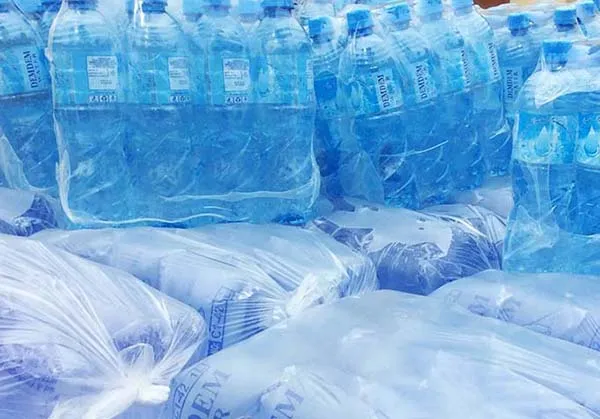Experts Highlight Health and Climate Risks of Drinking Bottled Water

Heavy reliance on bottled water threatens health and the environment, with 1 million bottles bought per minute globally. Despite claims of being safer than tap water, two-thirds of U.S. bottled water is repackaged tap water. Researchers warn this growing trend is fueled by misleading marketing, and harmful chemicals have been found in some bottled water.
According to the researchers, when plastic bottles are left out in the sun or in extremely hot conditions for a lengthy amount of time, harmful chemicals from the bottles—like phthalates and bisphenol A (BPA)—can seep into the water. Research has revealed impurities, such as microplastics, in as much as 78% of samples of bottled water.
Numerous health problems, such as oxidative stress, immune system disturbance, and changes in blood fat levels, have been linked to microplastic exposure. BPA exposure has been connected to long-term health hazards, including high blood pressure, cardiovascular disease, diabetes, and obesity. BPA is a chemical that is frequently found in plastics.
“While there are short-term safety thresholds, the long-term effects of these contaminants remain largely unknown,” the authors wrote, adding that microplastics can also enter the food chain through bottled water consumption.
Bottled water has a significant negative impact on the environment in addition to health hazards. Plastic bottles are the second most prevalent plastic waste item found in the water, contributing 12 percent of the plastic pollution found in the ocean.
Just 9% of these bottles are recycled; the majority are sent to low- and middle-income nations, incinerators, or landfills, posing ethical questions regarding social fairness and global waste management.
“It tends to be lower-income communities that bear the brunt of plastic waste and pollution, and in general, the consumption of these plastic water bottles comes from more affluent sections of society,” Abraham said. “So often the people who are contributing to the problem do not necessarily suffer the most from the impacts of that problem.”
The production of the bottles itself is harmful as well, since the extraction of raw materials and their fabrication greatly increase greenhouse gas emissions. In addition, water is required in the amount of 17 to 35 liters every bottle.
Some regions have started to minimize their consumption of bottled water by limiting the use of single-use plastics and expanding public access to drinking water. To reduce dependency on bottled water, the experts contend that much more work needs to be done.
To change public opinion, they want forceful government interventions and awareness-raising initiatives.
He added
“The onus should be on governments and regulatory bodies to rethink their policies.”
The authors urge governments, particularly in low- and middle-income countries, to invest in safe and reliable tap water infrastructure to address the root cause of bottled water dependency.
“By prioritizing tap water consumption, we can collectively address the multifaceted challenges posed by [bottled water] and embrace tap water as a cornerstone of environmental responsibility and public health,”
Abraham offers the following advise to customers who store emergency water supplies in their homes, such as those facing the approaching hurricane on the Gulf Coast: replace the water on a regular basis to prevent dangerous chemicals from leaking into the water. Non-plastic containers could be utilized as an alternative.
Read Also: Environmental Expert Explains Cause Of Ghana’s Extreme Heat



